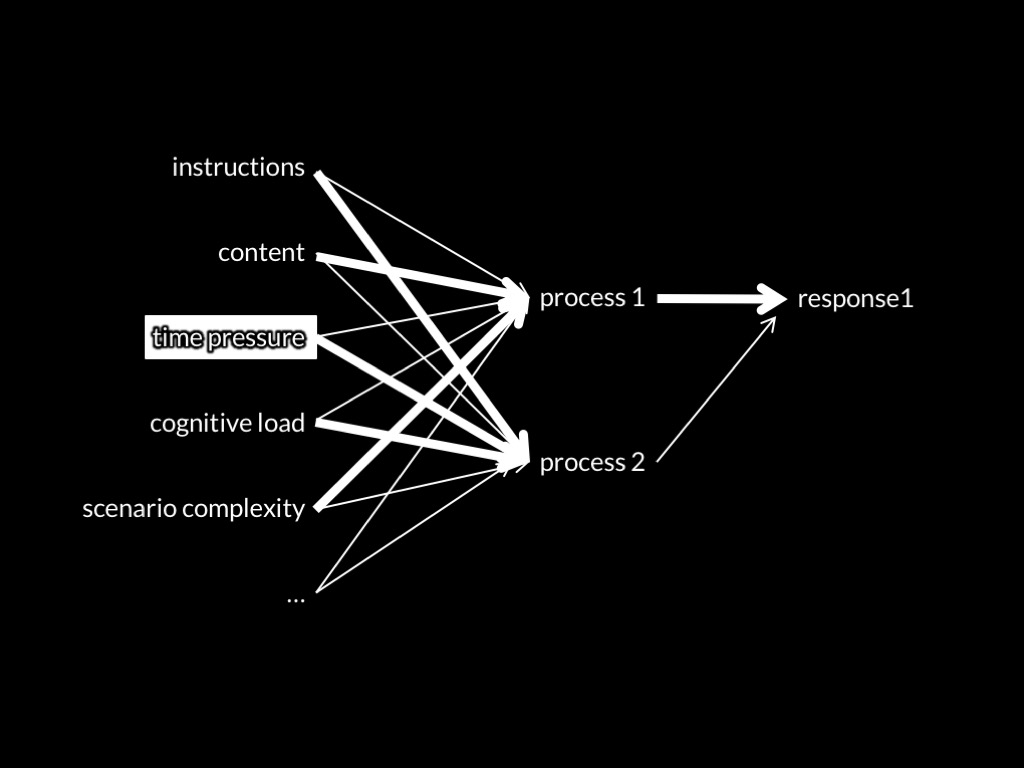Click here and press the right key for the next slide.
(This may not work on mobile or ipad. You can try using chrome or firefox, but even that may fail. Sorry.)
also ...
Press the left key to go backwards (or swipe right)
Press n to toggle whether notes are shown (or add '?notes' to the url before the #)
Press m or double tap to slide thumbnails (menu)
Press ? at any time to show the keyboard shortcuts
Dual Process Theories: Objections, Evidence and Significance
continues Lecture 07


Dual Process Theory of Ethical Abilities (core part)
Two (or more) ethical processes are distinct:
the conditions which influence whether they occur,
and which outputs they generate,
do not completely overlap.
One process makes fewer demands on scarce cognitive resources than the other.
(Terminology: fast vs slow)

‘Intuition is a resource in all of philosophy, but perhaps nowhere more than in ethics‘
(Audi, 2015, p. 57).
‘Episodic intuitions [...] can serve as data [...] ... beliefs that derive from them receive prima facie justification’ (p. 65).
‘self-evident propositions are truths meeting two conditions: (1) in virtue of adequately understanding them, one has justification for believing them [...]; and (2) believing them on the basis of adequately understanding them entails knowing them’ (p. 65).

‘a better understanding of the [...] origin of “intuitive” moral judgments might show them to be something other than manifestations of underlying moral competencies or principles.
“moral intuitions” might therefore deserve less deference [...] than they characteristically receive in philosophical [...] moral thought’
(Railton, 2014, p. 832).
Which comparison?
Ethics vs Physics
Not-justified-inferentially premises about particular moral scenarios cannot be used in ethical arguments where the aim is knowledge.
significance and extensions
quick objections
evidence for and against the dual process theory